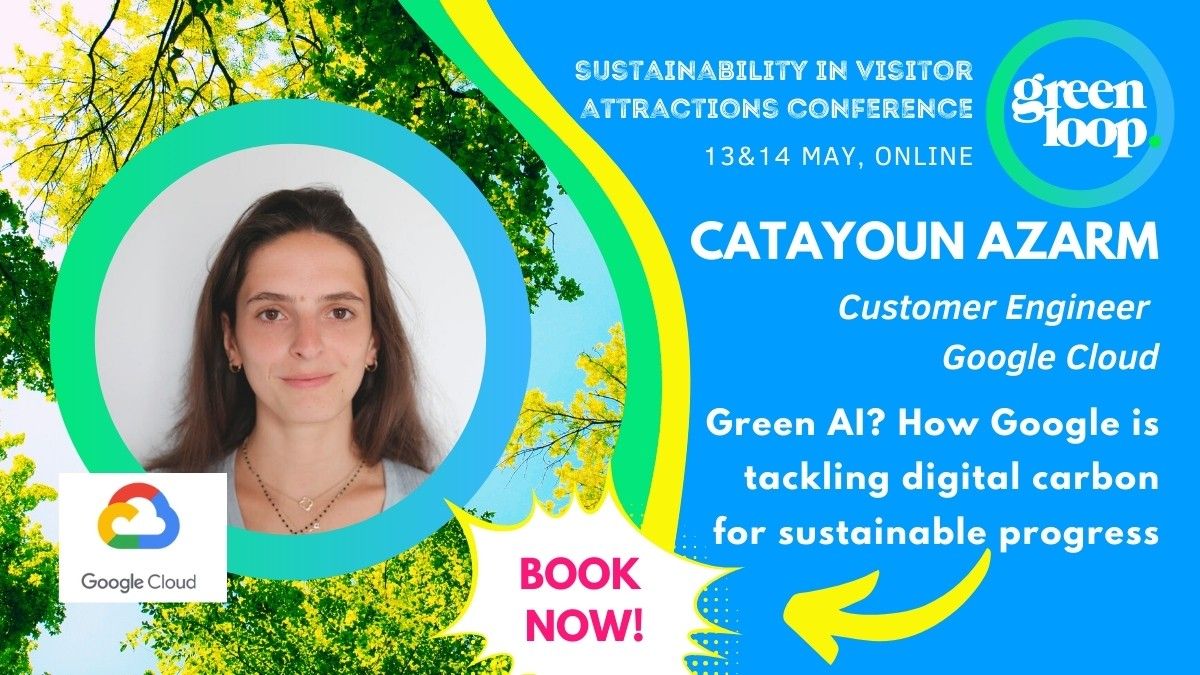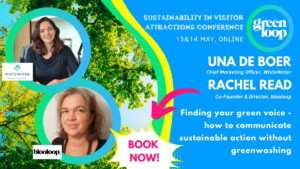AI has exploded into the public consciousness and seems to be infiltrating every aspect of our online lives. Although this new technology offers significant potential for climate action problem solving, it comes at an environmental cost.
From the raw materials and rare earth metals in construction of data centres, to water usage for cooling, to the electricity needed for power, the resources to harness this technology are huge and growing.
An estimate cited by the UN Environment Programme says that AI related infrastructure may soon consume six times more water than Denmark. The same report notes that the number of data centres is currently 8 million from 500,000 in 2012, with demand still increasing.
Google have set a goal to reach net zero across all operations and value chain by 2030. Given the rapid adoption of AI, and frenzied innovation in finding ever more uses for it, an already challenging target must be getting ever more difficult to achieve. Join us at greenloop to find out what Google is doing to reach net zero.
How Google is managing the energy demands of AI

Catayoun Azarm is a Customer Engineer at Google Cloud in Dublin, specializing in AI/ML and databases/analytics. She helps customers solve engineering challenges using cutting-edge tech, a role she describes as a “constant learning adventure – It’s about empowering customers with cutting-edge tech, thoughtfully navigating the trade-offs for sustainable impact, and collaborating with a brilliant global team to find those solutions.”
Catayoun will address greenloop attendees’ interest in how Google is managing the energy demands of AI. Google is committed to sustainability, aiming for net-zero emissions by 2030 and 24/7 carbon-free energy for its data centers and campuses. The company is tackling AI’s energy footprint through more efficient hardware like its Trillium TPUs, optimizing AI model training to reduce energy, and running some of the world’s most energy-efficient data centers using AI-powered systems and responsible water stewardship.
“Google is deeply invested in ensuring AI progress is sustainable. We’re focused on energy-efficient infrastructure and developing AI solutions that help industries like visitor attractions reduce their environmental impact.” Catayoun Azarm
Join us at greenloop 2025
We believe climate action can’t wait – that’s why group tickets to greenloop are just £10pp! We’ve made it incredibly affordable to bring your colleagues, clients, and friends because this is so important.
Your participation matters so show you care about a greener future – grab a group ticket and join us to find out how to make a real difference together.
greenloop, blooloop’s annual online conference for sustainability in visitor attractions, is taking place on 13 and 14 May 2025. Now in its fifth year, the event aims to inform and inspire with top speakers, cutting-edge science, and practical insights.














